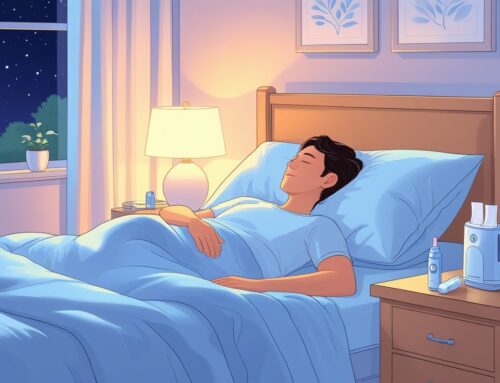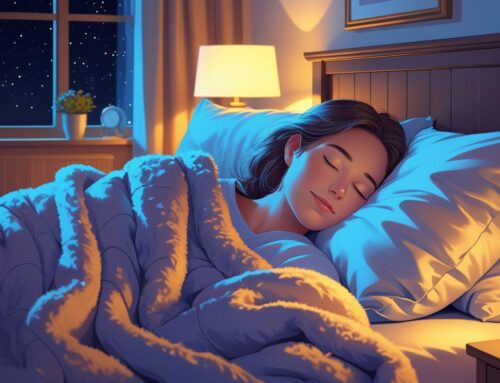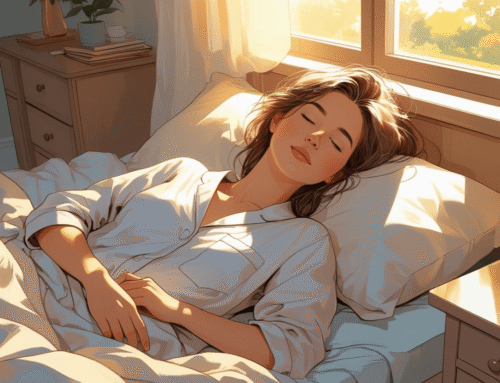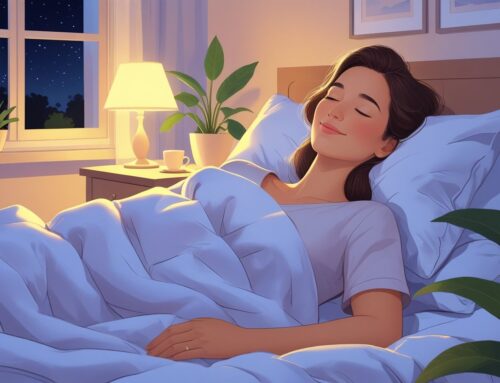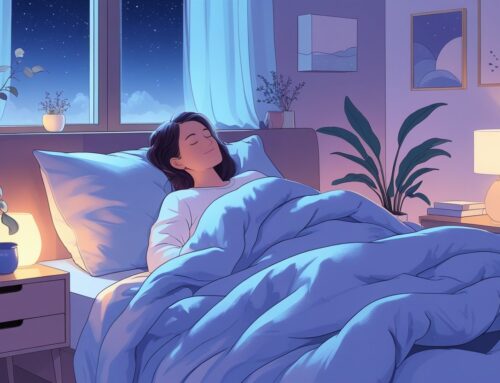Women generally need more sleep than men because of biological and hormonal differences. On average, they should get seven to nine hours of sleep each night to support both physical and mental health. Adequate rest allows women to manage stress more effectively, strengthens the immune system, and enhances mood and cognitive function.
Several factors influence sleep quality in women, such as menstrual cycles, pregnancy, and menopause. These stages disrupt sleep patterns and make it difficult to feel rested. Recognizing these unique challenges helps in finding practical solutions for better sleep.
Sleep needs shift with age and lifestyle, so women should stay aware of how their bodies change over time. Being mindful of sleep duration and quality leads to better overall health and sustained daily energy.
Key Takeaways
- Women typically need more sleep than men to stay healthy.
- Hormonal shifts throughout life affect how well women sleep.
- Sleep requirements vary with age and life events.
- Proper mattress support helps women sleep more comfortably by keeping the spine aligned, easing pressure on the hips and shoulders, and minimizing nighttime discomfort.
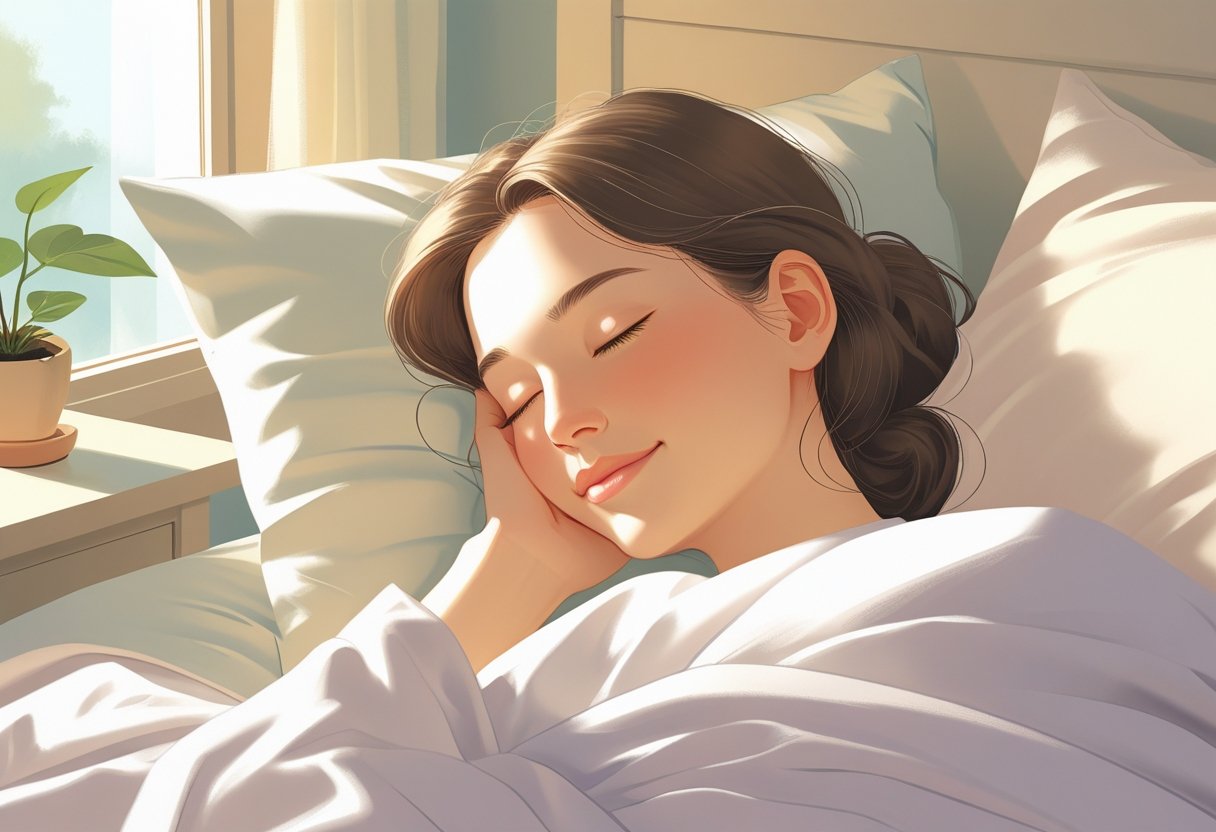
Understanding Recommended Sleep for Women
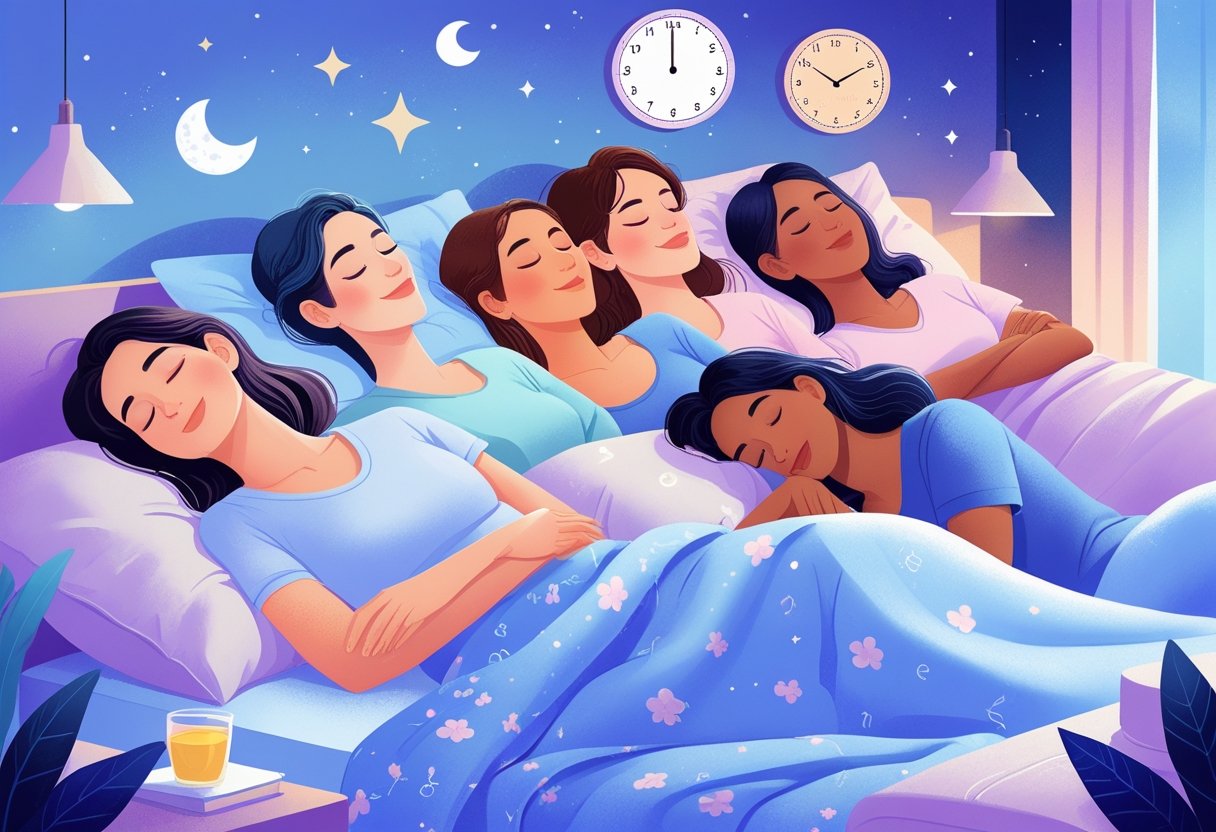
Women often need more sleep than men due to unique biological and hormonal factors. The amount of sleep women require varies by age, health, and life stage. However, research outlines general ranges and guidelines they can follow to stay healthy.
How Much Sleep Do Women Need
Adult women generally need between 7 and 9 hours of sleep each night. This range reflects the physical and mental demands specific to women, such as hormone changes during the menstrual cycle, pregnancy, and menopause.
Hormonal shifts disrupt sleep, which means some women need closer to 9 hours to feel fully rested. Studies show that fewer than two-thirds of women reach the recommended minimum of seven hours per night. This lack of sleep affects overall well-being.
Deep and uninterrupted sleep can lower the total hours needed. However, stress and health conditions frequently interfere with the quality of women’s rest.
How Many Hours of Sleep Should Women Get
Most experts recommend that adult women get 7 to 9 hours of sleep each night. This range helps support physical health, cognitive function, and emotional stability.
Pregnant and menopausal women often need more sleep or face challenges that reduce rest time. For instance, during menopause, many women lose up to 2.5 hours of sleep per night, which adds up to more than a month of missed sleep each year. Women should pay attention to signs from their bodies. If fatigue or mood changes occur during the day, increasing sleep duration may improve both health and alertness.
How Sleep Recommendations Are Determined
Sleep guidelines result from research that combines expert opinions, clinical studies, and health outcomes. These recommendations account for both the quantity and quality of rest necessary for proper function.
Women’s sleep needs reflect differences in biological rhythms and hormone levels, which influence sleep cycles more significantly than they do in men. Researchers base these guidelines on data from sleep trackers, hormone analyses, and national surveys.
Studies that document how sleep deficits affect women’s physical, emotional, and cognitive health further shape current guidance. This process keeps recommendations accurate and useful as new evidence appears.
Since individual needs differ, guidelines provide flexible ranges instead of fixed numbers. This approach allows women to adjust their sleep habits according to their health and daily demands.
Sleep Needs of Women Versus Men
Sleep needs vary between individuals, but research reveals consistent differences between men and women. These differences involve sleep duration, quality, and biological factors that influence rest. Understanding these distinctions helps explain why women often require more sleep and encounter unique challenges.
Do Women Need More Sleep Than Men
Women need more sleep than men to feel fully rested. Although the general recommendation for adults ranges from 7 to 9 hours per night, women usually benefit from the higher end of that range, or sometimes even more. This stems in part from the additional mental and physical demands placed on their brains and bodies.
Since women do multiple tasks throughout the day, their brains experience greater activity and fatigue, which leads to a need for deeper, more restorative sleep. Despite typically achieving higher sleep efficiency, they still require more total sleep to recover adequately.
Why Women May Need More Sleep Than Men
Several factors help explain this increased need for sleep. Hormonal fluctuations tied to menstruation, pregnancy, and menopause disrupt sleep patterns and quality. These shifts often lead to insomnia or broken sleep, both of which heighten the need for additional rest.
Women also face a higher incidence of sleep disorders, including restless leg syndrome and chronic insomnia. On top of that, they experience more frequent mental health challenges, such as anxiety and depression, which can further disturb sleep. Altogether, these issues place more strain on women’s sleep systems than men’s.
Scientific Studies on Sleep Differences
Scientific studies repeatedly show that women need more sleep than men. One study conducted by sleep researchers found that women require an average of 20 additional minutes of sleep each night to maintain peak cognitive performance and overall health.
Brain imaging research indicates that women engage more brain regions during memory and multitasking activities. This extra neural workload demands longer recovery during sleep. Additional studies highlight the higher prevalence of sleep disorders in women, reinforcing the conclusion that women need more rest to maintain well-being.
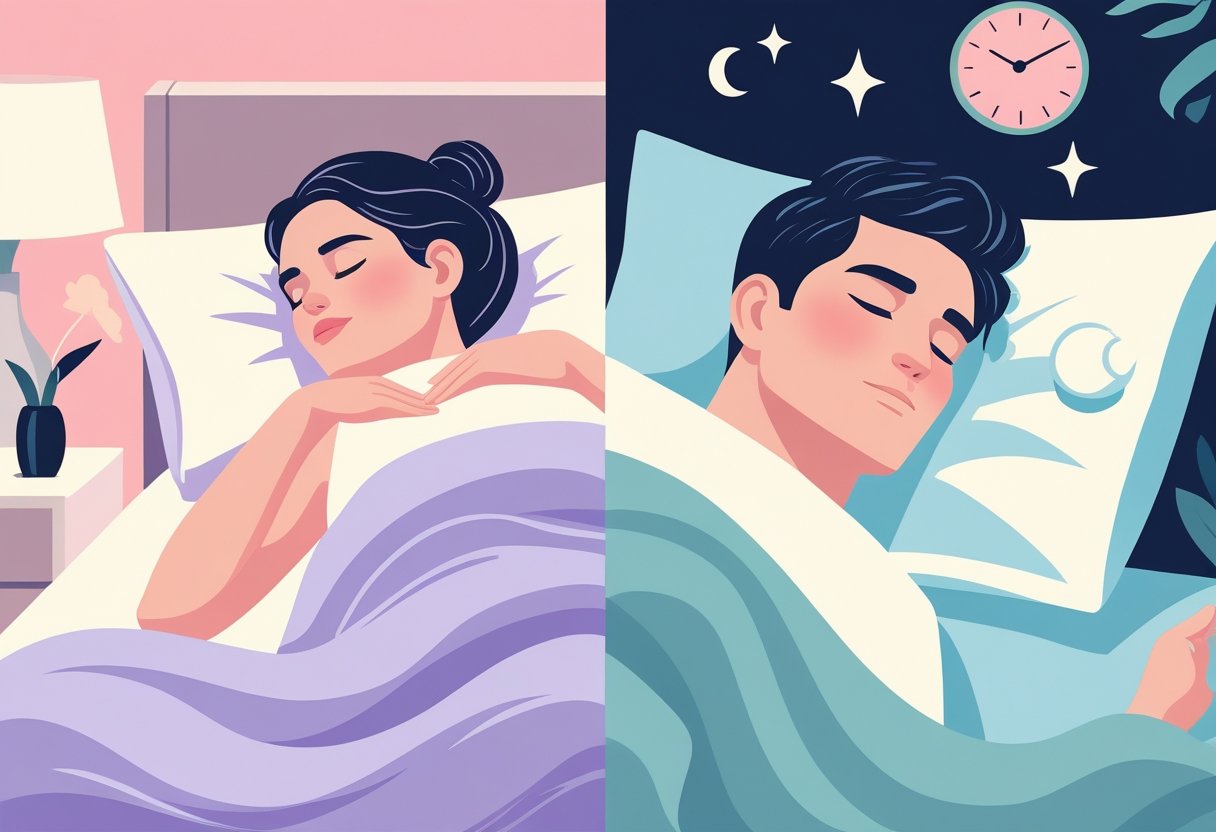
Underlying Factors Influencing Women’s Sleep
Women generally need more sleep than men, due to specific biological and hormonal differences. These factors influence sleep quality and duration, particularly during key life stages.
Hormonal Effects on Sleep Needs
Hormones are the reason women require more sleep than men. Fluctuations in estrogen and progesterone throughout the menstrual cycle alter sleep patterns. Estrogen supports deeper sleep, whereas progesterone can increase drowsiness yet also lead to disruptions.
Women face a higher risk of sleep disorders such as insomnia or restless leg syndrome, partly because of these hormonal shifts. Changes in hormone levels also affect brain chemistry, which in turn impacts sleep regulation.
As a result, women may need 8 to 9 hours of sleep, more than the 7 to 8 hours typically recommended for men. These shifts can lead to fatigue, which makes longer or higher-quality sleep essential. Left untreated, hormone-related sleep disorders may worsen emotional and mental health.
Reproductive Stages and Sleep
Sleep patterns shift significantly across reproductive stages, including menstruation, pregnancy, and menopause. Each stage introduces specific challenges that often reduce sleep quality.
Hormone fluctuations during menstruation often cause difficulty falling asleep and more frequent awakenings. Pregnancy brings physical discomfort along with hormonal changes, both of which disturb sleep, especially in the third trimester.
Menopause causes some of the most severe sleep disruptions. A drop in estrogen triggers hot flashes and night sweats, which commonly interrupt rest. Anxiety and mood swings may also occur, further interfering with sleep.
Since sleep supports hormone balance and immune function, these life stages increase women’s need for sufficient rest. Recognizing these factors helps explain why women generally require more sleep than men across their lifespan.
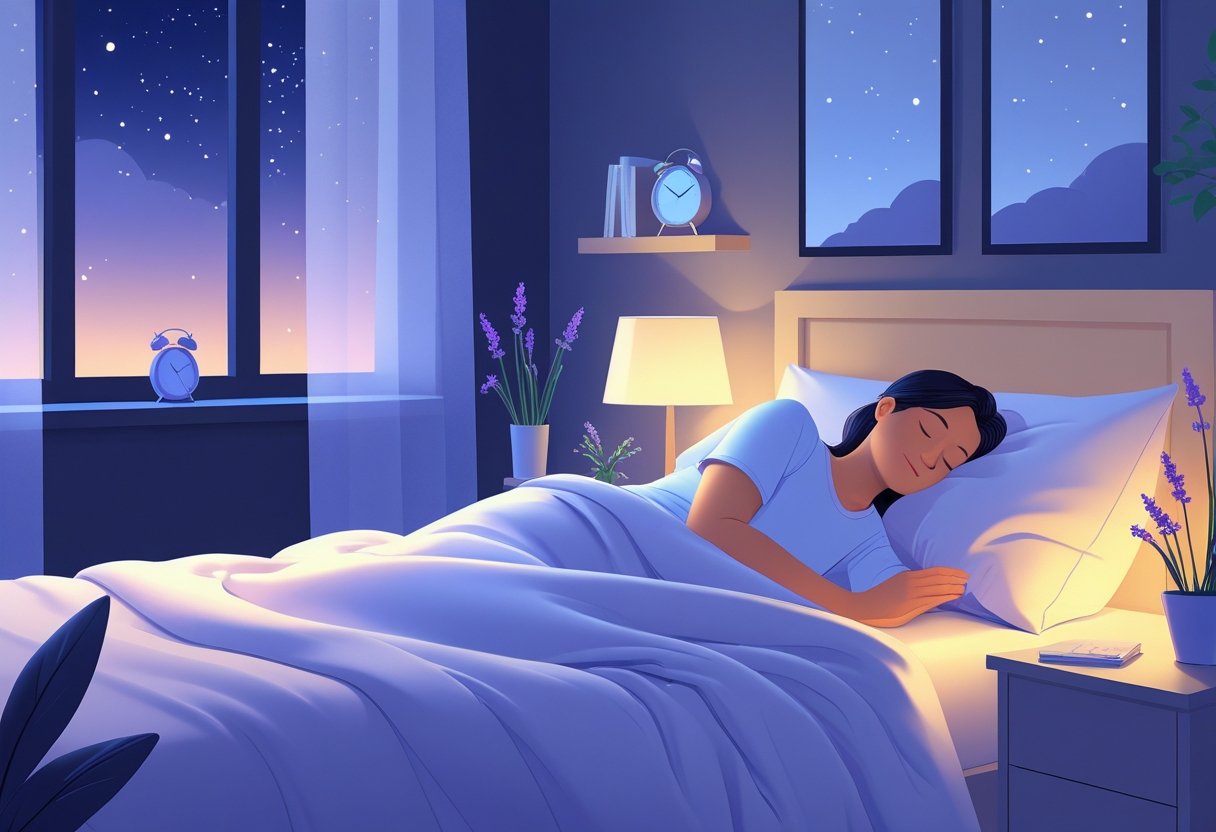
Special Sleep Requirements Across Life Stages
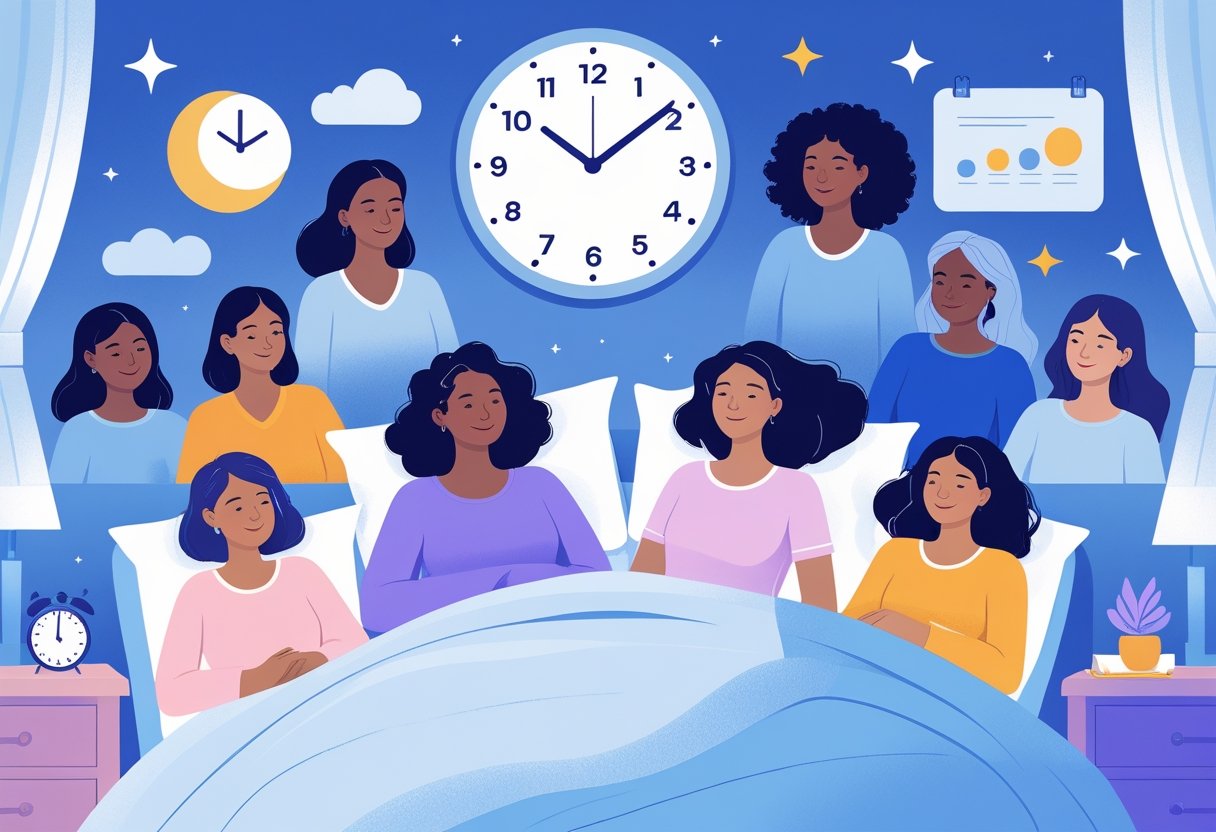
Women’s sleep needs change throughout different life stages. Hormonal changes and physical transitions influence both the amount and quality of sleep required. Recognizing these shifts helps support long-term health and well-being.
Sleep in Adolescent Girls
Adolescent girls often require more sleep than boys of the same age. This difference stems partly from earlier puberty in girls, which alters hormone levels and disrupts sleep patterns. Research indicates girls may need 9 to 10 hours of sleep, compared to 8 to 9 hours for boys. Girls in this stage frequently face sleep disturbances due to mood fluctuations and stress. School demands and social pressures can also limit sleep, making it harder to meet their needs.
Adequate sleep in adolescence supports brain development, emotional stability, and physical health. Parents and educators can encourage consistent sleep routines to help girls stay rested and focused.
Sleep in Adult Women
Adult women typically need 7 to 9 hours of sleep, slightly more than men. This variation relates to the influence of menstrual cycles, pregnancy, and breastfeeding on sleep patterns.
Hormonal shifts before and during menstruation often interrupt sleep. Physical discomfort and increased rest needs during pregnancy also affect sleep quality. Sleep is important in hormone balance, immune function, and mental health.
Women who fail to get sufficient sleep face higher risks of fatigue and mood disorders. Prioritizing sleep and addressing persistent issues with a healthcare provider remains essential for overall wellness.
Sleep During Menopause
Menopause causes noticeable changes in sleep patterns. Many women report shorter sleep and frequent awakenings. Hot flashes and night sweats, driven by declining estrogen levels, often disrupt rest. Sleep apnea and restless leg syndrome may also occur more frequently during this stage. Although the average sleep requirement remains around 7 to 8 hours, sleep quality tends to decline.
Managing symptoms through consistent routines, physical activity, and a cool sleeping environment helps improve rest. In more severe cases, medical intervention may be necessary to restore healthy sleep.
Recommended Sleep Duration for Optimal Health
Good sleep is essential for women to support both physical and mental health. The right amount of rest affects mood, energy levels, and overall well-being. As women go through different life stages, their sleep needs may shift in order to maintain optimal health.
Impact of Sleep Quantity on Well-being
Most women need between 7 and 9 hours of sleep each night, though some may require up to 10 hours, particularly during pregnancy or adolescence. Too little sleep can lead to irritability, difficulty focusing, and a weakened immune system.
Lack of sleep also increases the risk of chronic health conditions such as obesity, diabetes, and heart disease. Because hormonal shifts often influence sleep patterns, a consistent sleep schedule plays an important role in maintaining hormonal balance.
Potential Benefits of Longer Sleep Times
Sleeping 9 to 10 hours can improve memory, lift mood, and support physical recovery. Women who give themselves more time to rest tend to feel more emotionally stable and less tired throughout the day.
However, while longer sleep can offer these benefits, sleep quality matters just as much. Deep and uninterrupted rest helps regulate hormones and repair cells, both of which become especially important during periods of hormonal change. Focusing on both sleep duration and quality promotes long-term health and balance in women.

Addressing Sleep Challenges in Women
Women face unique sleep challenges that affect both the amount and quality of rest they receive. Hormonal changes and specific health conditions make it more difficult for many women to achieve the recommended seven or more hours of sleep per night. Understanding these challenges leads to finding effective solutions.
Common Sleep Disorders in Women
Women experience sleep disorders more frequently than men, including insomnia and sleep apnea. Insomnia involves difficulty falling asleep or staying asleep, often caused by stress, hormonal shifts, or mental health issues. Although sleep apnea is commonly associated with men, it also affects women, who may exhibit symptoms like fatigue and mood changes rather than snoring.
Hormonal fluctuations during menstruation, pregnancy, and menopause increase the risk of sleep problems. For instance, menopause often triggers night sweats and hot flashes that disrupt sleep. These disorders reduce overall sleep quality and cause fatigue, memory problems, and mood disturbances if left untreated.
Tips for Achieving Recommended Sleep
To reach the recommended seven or more hours of sleep, women can adopt several practical steps. Keeping a consistent sleep schedule regulates the body’s internal clock. Establishing a relaxing bedtime routine, such as reading or stretching, supports falling asleep faster.
The environment plays a key role as well. A cool, dark, and quiet bedroom promotes better rest. Avoiding caffeine and heavy meals before bedtime helps reduce sleep disruptions. Women experiencing hormonal sleep issues should seek advice from a healthcare provider for personalized treatment options.
Helpful habits for better sleep include:
- Going to bed and waking up at the same time daily
- Limiting screen time an hour before bed
- Practicing relaxation techniques like deep breathing
- Exercising regularly but not right before bedtime
Following these steps improves the chance of meeting recommended sleep needs and enhances overall health.
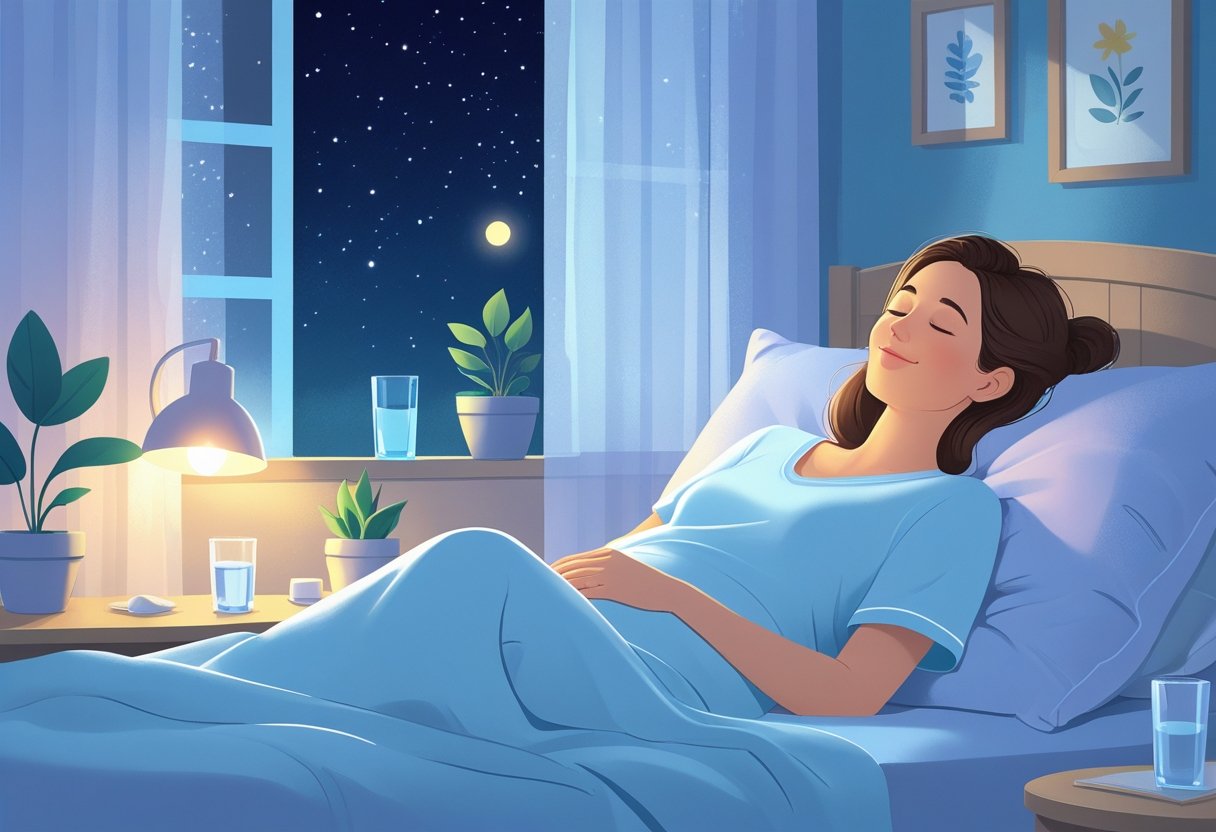
How Mattress Support Influences Sleep Quality in Women

Mattress support influences sleep quality in women by maintaining the spine in its natural alignment. Proper support reduces pressure points on the back, hips, and shoulders, easing discomfort and promoting more restful sleep.
Women prefer mattresses that combine firm support beneath the lower back with softer cushioning around the shoulders. This combination aligns the spine while accommodating natural curves, which enhances comfort throughout the night.
Key factors in mattress support include:
- Firmness level: Too soft causes sagging and too firm creates pressure points.
- Material: Memory foam conforms to body shape, whereas innerspring mattresses provide more bounce.
- Zoned support: Some mattresses feature varied firmness zones to better support specific body areas.
Adjusting mattress support improves sleep quality by reducing tossing and turning. Studies show that people who use new mattresses with proper support gain better rest and experience less back pain over time.
Women with back pain benefit from mattresses that provide extra firm support under the lumbar region. In contrast, side sleepers need softer support for the shoulders to prevent stiffness. Mattresses like the Brooklyn Bedding Aurora Luxe Cooling provide a balanced combination of targeted support and pressure relief, so they are a great choice for many women seeking enhanced comfort and proper spinal alignment.
Choosing the right mattress support preserves spinal angles that reduce discomfort and extend sleep duration. For more details on mattress support and its effects, see this comprehensive guide on mattress support.
Frequently Asked Questions
Women generally need more sleep than men, usually between 7 to 9 hours per night, because of hormonal changes and a higher risk of sleep disorders. Sleep requirements also vary with age and life stages such as pregnancy and menopause.

